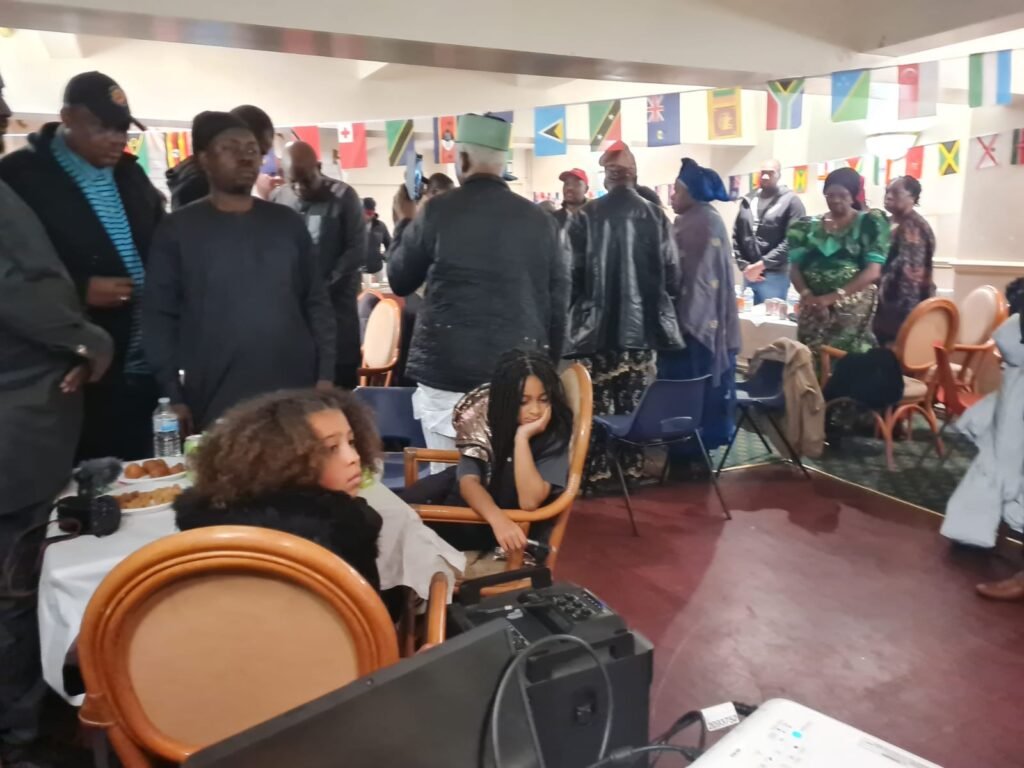Close to 1000 residents of the seaside port city of Liverpool will get real time advice/support and for those in fuel poverty, a little help to clear their debts after the launch of a new energy savings and bill reduction project. The project was officially launched on Saturday October 15 2022 at the Nigerian Community Centre located in Upper Parliament Street in Toxteth, Liverpool during Nigerian independence celebrations which was attended among others by a cross section of Nigerian notables and members of the vibrant Nigerian community in Liverpool. The project is funded with a grant from the Energy Industrial Voluntary Redress Scheme, which is administered by the Energy Saving Trust appointed by Ofgem to manage the scheme distributing payments from energy companies who may have breached ofgem rules. The Office for Gas, and Electricity Markets (Ofgem) regulates energy companies in the UK.
Launching the Project, Citizen Outreach Coalition (COC) Volunteers Coordinator Francis Langley explained why the organisation applied for funding to help people with their energy bills. “Energy bills are rising everyday but our salaries are stagnant. Most people especially those in vulnerable situations like the elderly, living in houses with young people or people who recently arrived in the UK like asylum seekers or refugees need support to understand and make changes to reduce their bills while staying warm”. Speaking earlier, COC Project Manager Francis Ngwa said the two years project was the organisations’ small way of supporting residents with the cost of Living crisis
Mr Wole Ajagbe, a trustee of the Nigerian community Center and a well-known elder of Liverpool thanked COC for launching the energy project in the Nigerian community center, a hub which is always open and supportive of any project that will help reduce the burden we all faced because of rising inflation. He called on residents to join in the campaign to reduce their energy bills and also reduce their carbon footprints
The Energy Savings awareness Campaign will include light touch advice events, home visits and telephone advice during which people will learn simple things they can do to reduce their energy bills while still staying warm especially as winter approaches. The small changes they can make will include reducing their thermostat temperatures by just one degree which could save up to £70 annually. A warm home needs anything between 18-21 degrees centigrades of heat. Washing cloths just once or twice a week full load is better than doing so daily and just washing a few cloths at a time. Tumbler dryers are expensive to run so people are advised to dry their cloths outside when that is possible.
To conserve home heating, windows, doors, roofs, lofts and floors must be well insulated and for those in vulnerable situations, they can apply for grants to insulate their homes. Other energy saving measures include turning off appliances when not in use (don’t keep them on standby mode) buying energy saving appliances, draughtproofing, turning down thermostatic radiator valves in rooms that are not being used and turning off lights when you leave a room
There is help and advice people can get from their energy suppliers, citizen advice, Energy saving trust, the location council, Fuel bank FoundationTurn2us and a host of other national and regional benefits and other advice organisations

Her are links to organisations that can help people with advice and signposts them to available grants
National Energy Action. https://www.nea.org.uk/
Energy Action Scotland. www.eas.org.uk/
Citizen Advice. www.citizensadvice.org.uk
The Centre for Sustainable Energy. www.cse.org.uk/
Energy Saving Trust. www.est.co.uk
Government benefits website www.gov.uk/
The Wise Group. www.thewisegroup.co.uk
SCARF website. www.scarf.org.uk
Useful Resources
The Centre for Sustainable Energy has produced a suite of around 50 simple and straightforward energy advice leaflets that cover insulation, household renewables, understanding your energy bills, heating systems and many other issues. They can be accessed at https://www.cse.org.uk/advice/advice-and-support
and hover over the ‘Advice and information for householders’ menu to see a full list.
CSE have a number of videos which can be found at: https://www.cse.org.uk/resources/index/category:videos
Energy Action Scotland has an Advisors Toolkit consisting of a number of factsheets which can be accessed at:
http://www.eas.org.uk/sources_of_help_advisors_toolkit.php
National Energy Action produces advice leaflets which can be accessed at: http://www.nea.org.uk/policy-and-research/publications/2015/information-leaflets The Community Action Partnership (CAP) was a programme delivered by National Energy Action (NEA) and British Gas in partnership with councils across the UK, aimed at delivering affordable energy improvements. The CAP website showcases some of the projects, as well as making their research and resources open to frontline workers to download. These can be found at: https://www.fuelpovertyresource.org.uk/

